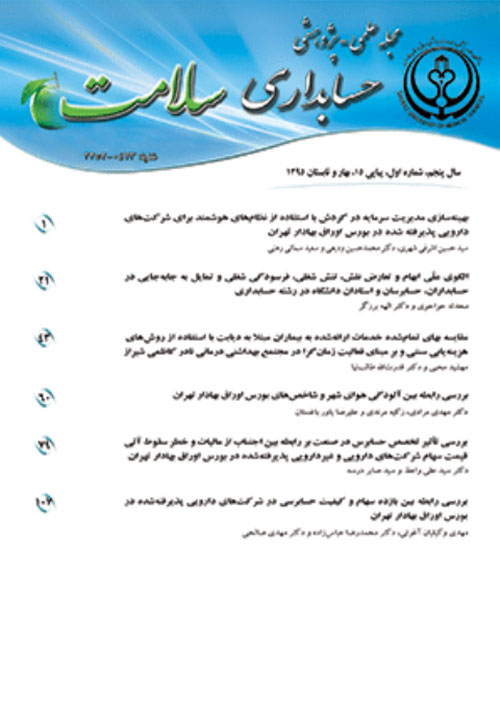The Challenges beyond the Obligation of Performance Audit in the Government Agencies of Iran
Author(s):
Abstract:
Introduction
A great amount of evaluating performance and offering suggestions and solution to solve the problem of the government agencies is possible through performance audit. Moreover, implementing this type of auditing has been obliged in the fifth five-year plan of development. Therefore, investigating the challenges beyond the obligation of performance audit in the government agencies of Iran has a great significance. Method
The present research is an applied descriptive survey in which the viewpoints of four groups including university professors, the auditors of the Audit Organization, the auditors of the Supreme Court of Audit, and the managers and auditors of the government agencies in Tehran and Alborz provinces have been collected by questionnaire. Hence, the data of the research have been analyzed by SPSS Software Version 18, Chi-squared Test, One-Way Analysis of Variance, and Friedman Test. Results
The Results of the research indicate that there is no agreement among the tested groups on the most important challenge, but regarding the sum of the scores based on their viewpoints, “not using accrual basis of accounting in the government agencies” has been considered as the most important challenge. In the case of the least important challenge, there is a relative agreement in such a way that most groups consider “the lack of mental and behavioral independency of the performance auditors” as the least important challenge in implementing the performance audit, and according to the sum of the scores, “the lack of mental and behavioral independency of the performance auditors” is the least important challenge from the viewpoint of the subjects. Conclusion
The most important challenges beyond the performance audit in the government agencies of Iran are not using the accrual basis, the inadequacy of rules and regulations in this field, the governmental manager's insistence on adhering to the traditional methods, inappropriate budgeting system, the conflicts of priorities and values between legislators and executives, the lack of public response-claiming culture, the shortage of expert force, the lack of appropriate criteria and standard for performance audit, and the non-existence of powerful and influential private and professional formations.Keywords:
Language:
Persian
Published:
Journal of Health Accounting, Volume:3 Issue: 4, 2015
Page:
1
magiran.com/p1454554
دانلود و مطالعه متن این مقاله با یکی از روشهای زیر امکان پذیر است:
اشتراک شخصی
با عضویت و پرداخت آنلاین حق اشتراک یکساله به مبلغ 1,390,000ريال میتوانید 70 عنوان مطلب دانلود کنید!
اشتراک سازمانی
به کتابخانه دانشگاه یا محل کار خود پیشنهاد کنید تا اشتراک سازمانی این پایگاه را برای دسترسی نامحدود همه کاربران به متن مطالب تهیه نمایند!
توجه!
- حق عضویت دریافتی صرف حمایت از نشریات عضو و نگهداری، تکمیل و توسعه مگیران میشود.
- پرداخت حق اشتراک و دانلود مقالات اجازه بازنشر آن در سایر رسانههای چاپی و دیجیتال را به کاربر نمیدهد.
In order to view content subscription is required
Personal subscription
Subscribe magiran.com for 70 € euros via PayPal and download 70 articles during a year.
Organization subscription
Please contact us to subscribe your university or library for unlimited access!


